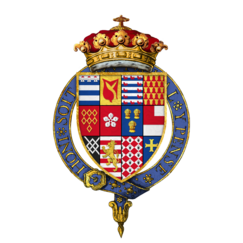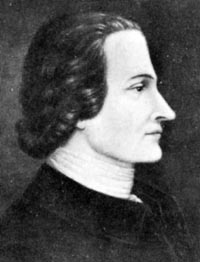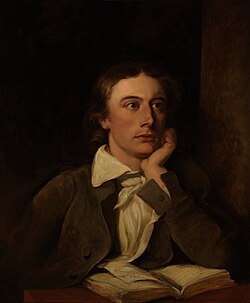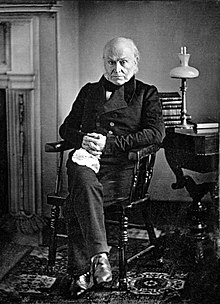February 23 is the 54th day of the year in the Gregorian calendar. There are 311 days remaining until the end of the year (312 in leap years).
Holidays
- Christian Feast Day:
- Lindel Tsen and Paul Sasaki, (commemoration, Anglicanism)
- Mashramani-Republic Day (Guyana)
- National Day (Brunei)
- Red Army Day or Day of Soviet Army and Navy in the former Soviet Union, also held in various former Soviet republics:
- Defender of the Fatherland Day (Russia)
- Terminalia held in honor of Terminus (Ancient Rome)
- International Dog Biscuit Appreciation Day
- Tennis Day
History
In 303, Roman Emperor Diocletian orders the destruction of the Christian church in Nicomedia, beginning eight years of Diocletianic Persecution.
In 532, Byzantine Emperor Justinian I orders the building of a new Orthodox Christian basilica in Constantinople – the Hagia Sophia.
In 1455, Traditional date for the publication of the Gutenberg Bible, the first Western book printed with movable type.
In 1554, Mapuche forces, under the leadership of Lautaro, score a victory over the Spanish at the Battle of Marihueñu in Chile.
In 1554, Henry Grey, 1st Duke of Suffolk, English politician (b. 1515) is beheaded by Queen Mary. He was an English nobleman of the Tudor period and the father of Lady Jane Grey. The son of Thomas Grey, 2nd Marquess of Dorset and of Margaret Wotton; through his father he was a great-grandson of Elizabeth Woodville, the queen of Edward IV of England, by her first marriage to Sir John Grey of Groby. Before 1530, Grey was betrothed to Katherine, the daughter of William FitzAlan, 18th Earl of Arundel. Henry Grey became the 3rd Marquess of Dorset in 1530 after his father died. In 1533, with the permission of King Henry VIII he married Lady Frances Brandon (1517–1559), the daughter of Henry VIII’s sister Mary Tudor and Charles Brandon, 1st Duke of Suffolk. The couple had three children who survived infancy: Lady Jane Grey (1537–1554), Lady Catherine Grey (1540–1568), and Lady Mary Grey (1545–1578). Before Henry VIII’s death in 1547, Grey became a fixture in court circles. A knight of the Bath, he was the king’s sword bearer at Anne Boleyn‘s coronation in 1533, at Anne of Cleves‘ arrival in 1540, and at the capture of Boulogne in 1545. Twice he bore the Cap of Maintenance in parliament. He helped lead the army in France in 1545. In 1547 he joined the Order of the Garter.
In 1653, The Ballet Royal de la Nuit is first performed at the Salle du Petit-Bourbon in Paris.
In 1739, Richard Palmer is identified at York Castle, by his former schoolteacher, as the outlaw Dick Turpin.
In 1778, American Revolutionary War: Baron von Steuben arrives at Valley Forge, Pennsylvania to help to train the Continental Army.
In 1781, George Taylor, an Irish-American politician, (b. 1716) dies. He was a Colonial ironmaster and a signer of the United States Declaration of Independence as a representative of Pennsylvania. Today, his former home, the George Taylor House in Catasauqua, Lehigh County, Pennsylvania, is a National Historic Landmark owned by the Borough of Catasauqua. In 1776, the Continental Congress voted for independence on July 2 and adopted the Declaration of Independence two days later, July 4. Before the vote for independence, five of Pennsylvania’s delegates, all loyalists, were forced to resign. On July 20, Taylor was among the replacements appointed by the Assembly. One of his first duties as a member of Congress was to affix his signature to the Declaration of Independence, which he did on August 2, along with most delegates. Of the 56 signers, he was one of only eight who were foreign born, the only one to have been indentured and the only one to hold the position of ironmaster.
In 1792, Humane Society of Massachusetts incorporated (erected life-saving stations for distressed mariners).
In 1820, Cato Street Conspiracy: A plot to murder all the British cabinet ministers is exposed.
In 1821, Alexander Ypsilantis starts the Greek War of Independence in Iași, Wallachia, modern-day Romania.
In 1821, John Keats, English poet (b. 1795) dies. He was an English Romantic poet. He was one of the main figures of the second generation of Romantic poets along with Lord Byron and Percy Bysshe Shelley, despite his work having been in publication for only four years before his death. Although his poems were not generally well received by critics during his life, his reputation grew after his death, so that by the end of the 19th century he had become one of the most beloved of all English poets. He had a significant influence on a diverse range of poets and writers. Jorge Luis Borges stated that his first encounter with Keats was the most significant literary experience of his life. The poetry of Keats is characterised by sensual imagery, most notably in the series of odes. Today his poems and letters are some of the most popular and most analysed in English literature. When Keats died at 25, he had been writing poetry seriously for only about six years, from 1814 until the summer of 1820; and publishing for only four. In his lifetime, sales of Keats’s three volumes of poetry probably amounted to only 200 copies. His first poem, the sonnet O Solitude appeared in the Examiner in May 1816, while his collection Lamia, Isabella, The Eve of St. Agnes and other poems was published in July 1820 before his last visit to Rome. The compression of his poetic apprenticeship and maturity into so short a time is just one remarkable aspect of Keats’s work. Although prolific during his short career, and now one of the most studied and admired British poets, his reputation rests on a small body of work, centred on the Odes, and only in the creative outpouring of the last years of his short life was he able to express the inner intensity for which he has been lauded since his death. Keats was convinced that he had made no mark in his lifetime. Aware that he was dying, he wrote to Fanny Brawne in February 1820, “I have left no immortal work behind me – nothing to make my friends proud of my memory – but I have lov’d the principle of beauty in all things, and if I had had time I would have made myself remember’d.”
In 1836, The Battle of the Alamo begins in San Antonio, Texas.
In 1847, Mexican–American War: Battle of Buena Vista – In Mexico, American troops under future president General Zachary Taylor defeat Mexican General Antonio López de Santa Anna.
In 1848, John Quincy Adams, American politician, 6th President of the United States (b. 1767) dies. He was an American statesman who served as the sixth President of the United States from 1825 to 1829. He also served as a diplomat, a United States Senator and a member of the House of Representatives. He was a member of the Federalist, Democratic-Republican, National Republican, and later Anti-Masonic and Whig parties. Adams was the son of former President John Adams and Abigail Adams. As a diplomat, Adams played an important role in negotiating many international treaties, most notably the Treaty of Ghent, which ended the War of 1812. As Secretary of State, he negotiated with the United Kingdom over the United States’ northern border with Canada, negotiated with Spain the annexation of Florida, and authored the Monroe Doctrine. Historians agree he was one of the greatest diplomats and secretaries of state in American history. As president, he sought to modernize the American economy and promoted education. Adams enacted a part of his agenda and paid off much of the national debt. He was stymied by a Congress controlled by his enemies, and his lack of patronage networks helped politicians eager to undercut him. He lost his 1828 bid for re-election to Andrew Jackson. In doing so, he became the first president since his father to serve a single term. Adams is best known as a diplomat who shaped America’s foreign policy in line with his ardently nationalist commitment to America’s republican values. More recently Howe (2007) portrayed Adams as the exemplar and moral leader in an era of modernization. During Adams’ lifetime, technological innovations and new means of communication spread messages of religious revival, social reform, and party politics. Goods, money, and people traveled more rapidly and efficiently than ever before. Adams was elected a U.S. Representative from Massachusetts after leaving office, serving for the last 17 years of his life with far greater acclamation than he had achieved as president. He is, so far, the only president later elected to the United States House of Representatives. Animated by his growing revulsion against slavery, Adams became a leading opponent of the Slave Power. He predicted that if a civil war were to break out, the president could abolish slavery by using his war powers. Adams also predicted the Union’s dissolution over the slavery issue, but said that if the South became independent there would be a series of bloody slave revolts
In 1854, The official independence of the Orange Free State is declared.
In 1861, President-elect Abraham Lincoln arrives secretly in Washington, D.C., after the thwarting of an alleged assassination plot in Baltimore, Maryland.
In 1861, by popular referendum, Texas became the seventh state to secede from the U.S.
In 1870, In the United States, post-Civil War military control of Mississippi ends and it is readmitted to the Union.
In 1883, Alabama becomes the first U.S. state to enact an anti-trust law.
In 1885, Sino-French War: French Army captures Dong Dang.
In 1886, Charles Martin Hall produced the first samples of man-made aluminum, after several years of intensive work. He was assisted in this project by his older sister Julia Brainerd Hall.
In 1887, The French Riviera is hit by a large earthquake, killing around 2,000.
In 1896, The Tootsie Roll is invented by Leo Hirshfield.
In 1898, Émile Zola is imprisoned in France after writing “J’accuse“, a letter accusing the French government of antisemitism and wrongfully imprisoning Captain Alfred Dreyfus.
In 1900, In South Africa, Boers and British troops fight in the Battle of Hart’s Hill.
In 1903, Cuba leases Guantánamo Bay to the United States “in perpetuity”.
In 1904, Control of the Panama Canal Zone was acquired by U.S. for $40 million.
In 1904, Japan guarantees Korean sovereignty in exchange for military assistance.
In 1905, Chicago, Illinois attorney Paul Harris and three other businessmen meet for lunch to form the Rotary Club, the world’s first service club.
In 1909, The AEA Silver Dart makes the first powered flight in Canada and the British Empire.

A Cure for Pokeritis is an American short silent film starring John Bunny and Flora Finch (pictured), released on February 23, 1912. A domestic comedy, it depicts a woman who stops her husband’s gambling habit by having her cousin stage a fake police raid on his weekly poker game. It was one of many shorts produced by Vitagraph Studios, whose popularity made Bunny and Finch early film stars. Although its style of humor is dated, it is a historically important representative of its period and genre. The film was an early example of efforts to move beyond the conventions of stage plays: during the police raid, action took place in both the foreground and the background, with the actors moving between them. This cinematography technique improved the realism and pacing of the scene. A Cure for Pokeritis may be the first depiction of poker in film. Like Cassius Marcellus Coolidge‘s Dogs Playing Poker paintings, it reflects the early 20th-century perception of the game as a male-dominated social vice.
In 1917, First demonstrations in Saint Petersburg, Russia. The beginning of the February Revolution.
In 1918, Last monarch of Mecklenburg-Strelitz commits suicide.
In 1919, Benito Mussolini broke with the Socialist party and founded his own Fasci del Combattimento (Fascist) party in Italy.his views now centering on nationalism instead of socialism and later founded the fascist movement which came to oppose egalitarianism and class conflict, instead advocating “revolutionary nationalism” transcending class lines.
In 1921, The first U.S. transcontinental air mail flight arrived in New York City from San Francisco.
In 1927, President Calvin Coolidge signs a bill by Congress establishing the Federal Radio Commission (later replaced by the Federal Communications Commission) which was to regulate the use of radio frequencies in the United States.
In 1927, German theoretical physicist Werner Heisenberg writes a letter to fellow physicist Wolfgang Pauli, in which he describes his uncertainty principle for the first time.
In 1934, Leopold III becomes King of Belgium.
In 1941, Plutonium is first produced and isolated by Dr. Glenn T. Seaborg.
In 1942, World War II: Japanese submarines fire artillery shells at the California coastline near Santa Barbara.
In 1943, A fire breaks out at St. Joseph’s Orphanage, County Cavan, Ireland, killing 36 people (35 of whom are children).
In 1943, Greek Resistance: The United Panhellenic Organization of Youth is founded is Greece.
In 1944, The Soviet Union begins the forced deportation of the Chechen and Ingush people from the North Caucasus to Central Asia.
In 1945, World War II: During the Battle of Iwo Jima, a group of United States Marines and a commonly forgotten U.S. Navy Corpsman, reach the top of Mount Suribachi on the island and are photographed raising the American flag.
In 1945, World War II: The 11th Airborne Division, with Filipino guerrillas, free the captives of the Los Baños internment camp.
In 1945, World War II: The capital of the Philippines, Manila, is liberated by combined Filipino and American forces.
In 1945, World War II: Capitulation of German garrison in Poznań. The city is liberated by Soviet and Polish forces.
In 1945, World War II: The German town of Pforzheim is annihilated in a raid by 379 British bombers.
In 1947, The International Organization for Standardization (ISO) is founded.
In 1954, The first mass inoculation of children against polio with the Salk vaccine begins in Pittsburgh.
In 1955, First meeting of the Southeast Asia Treaty Organization (SEATO).
In 1958, Cuban rebels kidnap 5-time world F1 champion Juan Manuel Fangio.
In 1965, Stan Laurel, English actor and director (b. 1890) dies. He was an English comic actor, writer and film director, most famous as Laurel of Laurel and Hardy–Hardy being Oliver Hardy. Laurel began his career in the British music hall, from where he took a number of his standard comic devices: the bowler hat, the deep comic gravity, and the nonsensical understatement. He was a member of “Fred Karno‘s Army,” where he was Charlie Chaplin‘s understudy. The two arrived in the US on the same ship from Britain with the Karno troupe. Laurel went into films in the United States, with his acting career stretching between 1917 and 1951, and from “silents” to “talkies.” It included a starring role in the film The Music Box (1932), which won an Academy Award. In 1961, Laurel was given a Lifetime Achievement Academy Award for his pioneering work in comedy. He has a star on the Hollywood Walk of Fame at 7021 Hollywood Blvd. In a 2005 UK poll to find The Comedians’ Comedian, Laurel and Hardy ranked top among best double acts and seventh overall. In 2009, a bronze statue of the duo was unveiled in Laurel’s hometown of Ulverston, Cumbria. Arthur Stanley Jefferson was born in his grandparents’ house on 16 June 1890 at 3 Argyle Street, Ulverston, Lancashire (now Cumbria), England. He had two brothers and a sister. His parents, Arthur and Margaret (“Madge”) Jefferson, were both active in the theatre and always very busy. In his early years, the boy spent much time living with his grandmother Sarah Metcalfe. He attended school at King James I Grammar School, Bishop Auckland, County Durham and the King’s School, Tynemouth.
He moved with his parents to Glasgow, Scotland, where he completed his education at Rutherglen Academy. His father managed Glasgow’s Metropole Theatre, where Laurel began work. His boyhood hero was Dan Leno, one of the greatest British music hall comedians. At the age of 16, with a natural affinity for the theatre, Laurel gave his first professional performance on stage at the Panopticon in Glasgow.
In 1966, In Syria, Ba’ath Party member Salah Jadid leads an intra-party military coup that replaces the previous government of General Amin Hafiz, also a Baathist.

In 1974, The Symbionese Liberation Army demands $4 million more to release kidnap victim Patty Hearst.
In 1980, Iranian Supreme Leader Ayatollah Ruhollah Khomeini states that Iran’s parliament will decide the fate of the American embassy hostages.
In 1981, In Spain, Antonio Tejero attempts a coup d’état by capturing the Spanish Congress of Deputies.
In 1983, The United States Environmental Protection Agency announces its intent to buy out and evacuate the dioxin-contaminated community of Times Beach, Missouri.
In 1987, Supernova 1987a is seen in the Large Magellanic Cloud.
In 1991, Gulf War: Ground troops cross the Saudi Arabian border and enter Iraq, thus beginning the ground phase of the war.
In 1991, In Thailand, General Sunthorn Kongsompong leads a bloodless coup d’état, deposing Prime Minister Chatichai Choonhavan.
In 1998, In the United States, tornadoes in central Florida destroy or damage 2,600 structures and kill 42.
In 1996, The Iraqi News Agency reported that Lt. Gen. Hussein Kamel al-Majid and his brother Saddam Kamel al-Majid, a pair of defectors who were also the sons-in-law of Saddam Hussein, were killed by clan members after returning to their homeland.
In 1999, Kurdish rebel leader Abdullah Öcalan is charged with treason in Ankara, Turkey.
In 1999, An avalanche destroys the Austrian village of Galtür, killing 31.
In 2005, The controversial French law on colonialism is passed, requiring teachers to teach the “positive values of colonialism”. After public outcry, it is repealed at the beginning of 2006.
In 2007, A train derails on an evening express service near Grayrigg, Cumbria, England, killing one person and injuring 22. This results in hundreds of points being checked over the UK after a few similar accidents.

In 2008, A United States Air Force B-2 Spirit crashes on Guam. It is the first operational loss of a B-2.
In 2010, Unknown criminals pour more than 2.5 million liters of diesel oil and other hydrocarbons into the river Lambro, in Northern Italy, sparking an environmental disaster.
In 2012, A series of attacks across Iraq leave at least 83 killed and more than 250 injured.
In 2014, The closing ceremony of the Winter Olympics take place in Sochi, Russia.
In 2015, Veterans Affairs Secretary Robert McDonald apologized on Monday for claiming that he had served in the U.S. Special Forces. His assertion, to a homeless veteran and captured on camera by CBS News, “was inaccurate, and I apologize to anyone that was offended by my misstatement,” he said. McDonald did serve in the 82nd Airborne Division for five years in the 1970s, including completing Army Ranger training, but the 82nd Airborne isn’t one of the military units that send elite troops to the Special Forces.
In 2015, The 87th Academy Awards posted the worst ratings for an Oscars telecast since 2009, according to Nielsen estimates released on Monday, the day after the ceremony. The broadcast, hosted by Neil Patrick Harris and capped by Birdman‘s selection as best picture, averaged 36.6 million viewers, down 16 percent from last year’s 43.7 million, under host Ellen DeGeneres. The last time the Oscars had fewer viewers was in 2009, when 36.3 million tuned in to watch host Hugh Jackman in the year Slumdog Millionaire won best picture.
Was it the orchestrated politics? Maybe….
In 2016, Trump emerged victorious in Tuesday night’s Nevada caucuses in an emphatic win that continues to bolster his momentum. With 100 percent of precincts reporting, Trump won with 45.91 percent of the vote, followed by Rubio with 23.85 percent and Cruz with 21.38 percent.
In 2017, The Turkish-backed Free Syrian Army captures Al-Bab from ISIL.
In 2019, Atlas Air Flight 3591, a Boeing 767 freighter, crashes into Trinity Bay near Anahuac, Texas, killing all three people on board.





